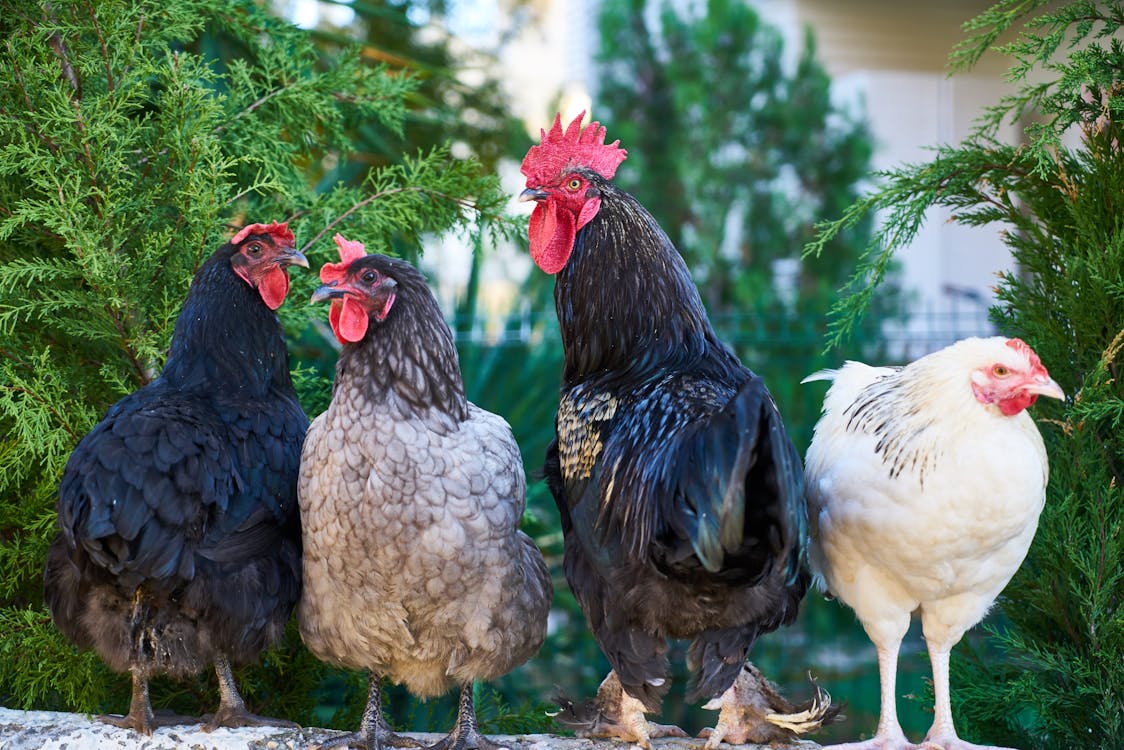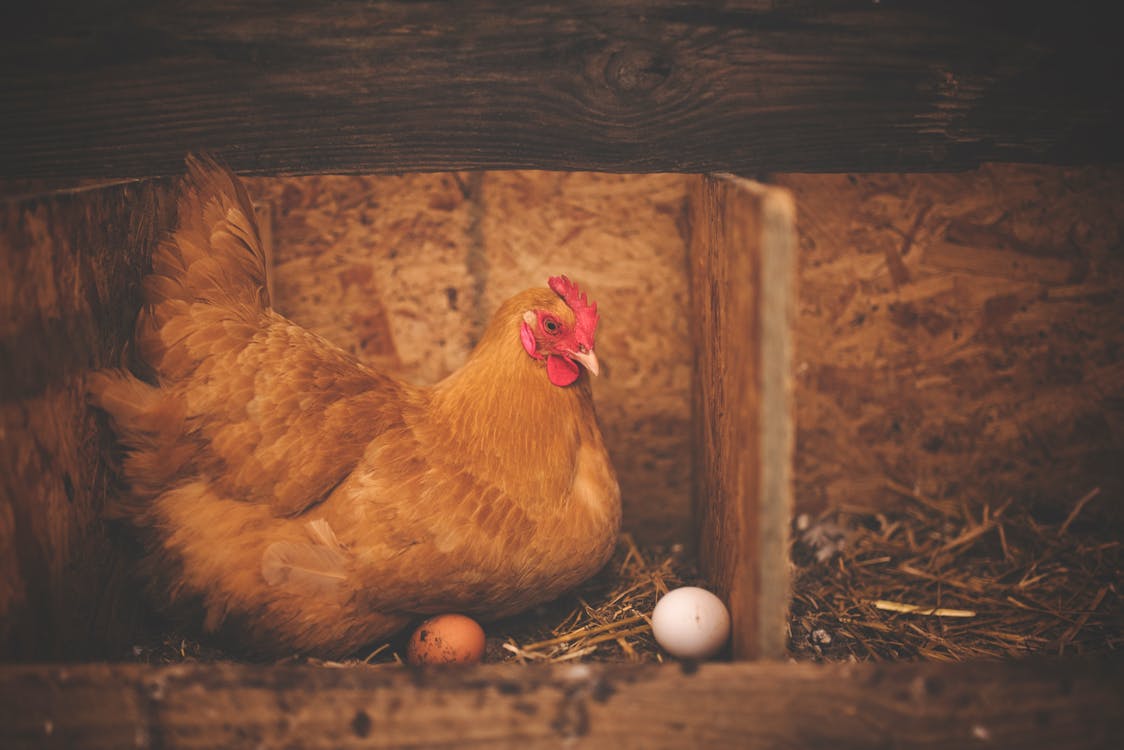
Sustainable Pest Control Solutions for Raising Backyard Chickens
Raising backyard chickens offers a handful of benefits to households trying to be more self-sufficient. Poultry animals are a reliable source of meat and eggs, and they serve as natural pest control for gardens.
However, feathered flocks can be susceptible to pest infestations that compromise their health and home. This blog post is a deep dive into the common poultry pests and sustainable solutions available that keep those pests at bay.
Common Pests Affecting Backyard Chickens
Maintaining a healthy flock starts by knowing which pests might affect them. These include mites, lice, and flies, each presenting unique challenges to chicken well-being.
Mites, such as the northern fowl mite, are tiny eight-legged parasites that can infest chicken feathers, leading to discomfort and potential health issues.
Meanwhile, lice feed on the skin and feathers of chickens, causing irritation. Flies, attracted to manure and waste, irritate chickens and contribute to the spread of diseases.
The Potential Harm Caused by These Pests to Chickens and Their Eggs
 When left untreated, pests in chickens pose a serious threat to their overall health. Infestations of mites or lice can result in reduced egg production, weight loss, and in severe cases, mortality.
When left untreated, pests in chickens pose a serious threat to their overall health. Infestations of mites or lice can result in reduced egg production, weight loss, and in severe cases, mortality.
Additionally, stressed hens and roosters are more susceptible to diseases, affecting the overall productivity of your flock.
Traditional Pest Control Methods
Adopting a proactive approach to pest control is vital. Doing so begins with learning about the available methods of pest control. Let’s explore the traditional types of pest control: chemical pesticides and mechanical methods.
Chemical Pesticides
Chemical pesticides have long been a common choice for pest control. Insecticides offer a quick response to infestations. However, the risks associated with chemical pesticides are significant.
Exposure can have adverse effects on both the environment and the health of your chickens. Soil contamination, air pollution, and potential harm to non-target species are just some of the drawbacks of this pest control option.
As outlined by the New Jersey Department of Environmental Protection, pesticides can induce a range of health issues in humans, from respiratory problems to reproductive disorders.
Mechanical Methods
In contrast, mechanical pest control relies on traps and barriers, providing a more sustainable alternative. This approach minimizes the use of harmful chemicals and their associated risks.
While traps and barriers can be effective in certain situations, they may struggle to address larger-scale infestations and require vigilant monitoring for optimal results.
The Need for Sustainable Pest Control
 The previous section established how pesticides can be harmful to the environment. It has also mentioned how mechanical pest control has its limitations.
The previous section established how pesticides can be harmful to the environment. It has also mentioned how mechanical pest control has its limitations.
When conventional approaches to eliminating pests in backyard flocks are problematic or insufficient, it is best to look to sustainable methods.
Opting for sustainable pest control protects our immediate surroundings and contributes to the overall health of our ecosystem.
Sustainable Pest Control Solutions
Choosing sustainable pest control solutions is not just an eco-conscious decision but a paramount step in ensuring the well-being of both our feathered friends and ourselves.
Beneficial Insects
Beneficial insects are nature’s allies in the battle against pests. These tiny warriors play a crucial role in maintaining a balanced ecosystem in your backyard. Ladybugs, lacewings, and parasitic wasps are heroes, preying on pests that bother your chickens. Introduce these natural allies to your coop to prevent infestations of harmful pests.
Companion Planting
Enhance your chicken’s environment with companion planting. Planting herbs like mint and basil around the coop allows you to create a natural defense system. These aromatic plants repel pests, making the coop an unwelcome place for intruders.
Consider combining nasturtiums with your chicken run; their vibrant blooms deter pests while providing a feast for the eyes.
Diatomaceous Earth
Meet diatomaceous earth—a fine powder that acts as a formidable pest barrier. Sprinkle this mineral-rich substance in your coops to dehydrate and eliminate pests without harming your feathered friends.
Diatomaceous earth is a natural, chemical-free solution that ensures a pest-free environment. Your chickens will thank you for the dust baths that simultaneously keep mites and lice at bay.
Essential Oils
Harness the power of essential oils to fortify your chicken haven. Oils like lavender, citronella, and peppermint act as natural pest repellents.
Safely diffuse these oils in areas where fleas are most active. This will create an aromatic shield against unwanted invaders. With a few drops, you’ll transform your chicken space into a fragrant, pest-resistant retreat, where your chickens can thrive without the nuisance of bothersome bugs.
Implementing Sustainable Pest Control Practices
Developing a Holistic Pest Management Plan
Holistic pest management involves understanding the ecosystem and using natural controls to maintain a balance. Identify potential threats early and address them wisely to prevent infestations.
By incorporating this approach, you not only protect your chickens but also promote a sustainable and harmonious environment.
Monitoring and Early Detection of Pest Infestations
Vigilance is key to successful pest control. Regularly monitor your chickens for signs of pests, such as irritation or restlessness. The USDA emphasizes the importance of early detection to prevent pest populations from escalating.
Detecting issues promptly allows for targeted and minimal intervention, reducing the need for harsh chemicals.
Integrating Sustainable Methods into Daily Chicken Care Routines
 Make sustainability a part of your daily routine in caring for your chickens that are cornish cross or some other breed.
Make sustainability a part of your daily routine in caring for your chickens that are cornish cross or some other breed.
Use natural remedies, such as herbs and diatomaceous earth, to control pests without harming your chickens or the environment.
Try combining the different sustainable solutions discussed in the previous sections to create an integrated pest management strategy. By combining various sustainable methods. By incorporating these practices into your daily care, you not only ensure a healthier living environment for your chickens but also contribute to the broader goal of sustainable agriculture.